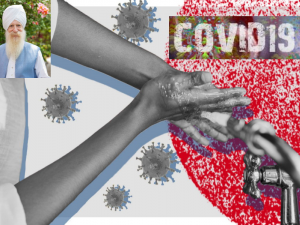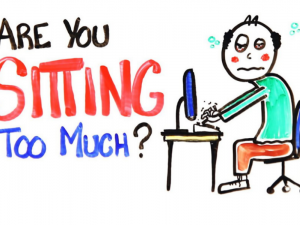5 Myths Getting in the Way of Your Peaceful Slumber
and the 5 Sleep Solutions that Really Work
For 40 million Americans, waking up feeling rested is as elusive as the proverbial white rabbit. These people suffer from chronic sleep disorders such as insomnia that prevent them from getting the sleep they need to feel refreshed.
And they are not alone. Another 70 million Americans are affected by non-chronic sleep problems, while 20 million to 30 million have intermittent sleep-related problems. It’s quite ironic, really, that so many of us have trouble with an activity that’s supposed to take up about one-third of our lives!
So why are we all not sleep “experts,” laying down at night only to fall asleep, sound asleep, as soon as our head hits the pillow?
Top Reasons for Insomnia
There are as many causes of insomnia, which means “no sleep” in Latin, as there are manifestations. Insomnia can be an inability to fall asleep or to stay asleep; it can be chronic or last just a few nights. It can come and go with seemingly no warning.
One of its primary causes, as you might suspect, is stress. But both good and bad forms of stress can keep you up at night. For instance, fearing that you’re next in line for layoffs at your job or anticipating an upcoming vacation can both interfere with your sleep. And so can a myriad of other things, including:
- Underlying medical problems (pain, depression, digestive problems, etc.)
- Shift work that requires you to sleep during the day, instead of at night
- Certain medications
- Various life stages (college or job deadlines, menstruation, pregnancy, menopause, old age)
- Somniphobia: Fear of falling asleep
Lack of sleep clearly does not come without a price. Sleep deprivation and disorders are estimated to cost over $100 billion each year in lost productivity, sick leave, medical expenses, and damages to property and the environment, according to the National Sleep Foundation (NSF). Worse yet, they can take a serious toll on your health.
A recent study found that men with insomnia have a four times higher death rate than normal sleepers (those who get at least six hours of sleep a night). When underlying medical conditions like diabetes and high blood pressure were factored into the equation, insomniacs’ death risk rose to seven times that of normal sleepers.
Other serious consequences of too little sleep include:
- An increased risk of diabetes
- Accelerated aging
- An increased risk of cancer
- An increased risk of psychological problems
Are These Sleep Myths Getting in the Way of Your Shut-Eye?
Since for many people sleep time is scarce as it is, what you really need is to fall asleep, fast. But firts, consider the following myths about sleep aids you think are helping but may actually be hindering your good night’s sleep:
-
Sleeping Pills: Sleeping pills that increase drowsiness, such as Lunesta, Sonata, and Ambien, may help you to fall asleep, but if the dose is off it can actually make you feel groggy in the morning. They also carry risks of side effects that can make sleep difficult, including heartburn, stomach pain, shaking, unusual dreams, diarrhea, gas and burning or tingling in your hands, arms, feet and legs.
It’s also possible to become psychologically dependant upon sleeping pills, to the point you feel you are may be unable to sleep without them, making sleeping pills possibly addictive.
We highly recommend making an appointment to help identify the cause of your sleep issues. Once the cause is determined and treated often there is no need for an ongoing cure.
It's truly important to be able to fall asleep and get a good night sleep every night. Below are several ways to identify the cause(s) of sleeping problems.
-
Exercise at Night: Regular exercise will help you to get a good night's sleep, but do it too close to bedtime and you may be too revved up to sleep. So we recommend setting your workout time for as early as possible in the day, or at least complete it three hours before your bedtime.
-
Heavy Bedtime Snack “Comfort Food”: Do you indulge in a cup of tea or cocoa before bed? Nibble on a few cookies or other late-night dessert? Or perhaps you’re a late eater that likes to eat dinner just before bed then head for the sack? These habits can significantly interfere with your sleep, either because of the caffeine they contain or, if you eat a large meal or heavy snack, while initially a good healthy meal does slow down your metabolism as most people feel sleepy right after eating, the digestion that follows will equate to restless sleep.
Taking a good walk right after a meal can best help your digestive track so three hours later you are ready for a good restful night’s sleep without digestive track interruption.
You’ll sleep best if your last meal of the day is already digested before you head to bed, so try not to eat within three hours of bedtime, and if you must eat a little something make it at least two hours before heading to bed -- a light snack of no more than 200 calories.
-
A Drink, like a Little Wine, to Relax Before Bed: Do you drink a glass of wine, a couple of beers or another cocktail to help you unwind before bed? Alcohol may make you drowsy initially, but it also often leads to middle of the night awakenings. This means that if you drink before bed, you’re much less likely to have a restful night’s sleep.
Alcohol can actually cause insomnia and might be a symptomatic clue that it is in fact a primary cause of insomnia. If you stop drinking for several weeks along with proper sleep preparations and find that you are getting a good night sleep, it’s likely that alcohol was keeping you up at night.
It is highly recommended that you not have a drink for at least three hours before going to bed ... and if you’re going to have an alcoholic drink, do so before or with your meal to let it too digest with your meal to not later in the night have added digestive problems, which could initially be disguised by the numbing effects of the alcoholic drink.
-
Burning the Midnight Oil: If you stay up late working, watching TV or for any reason, you may think that your fatigue will eventually win you over, causing you to pass out for the night. But there are two problems with this theory.
If you wake up and go to sleep at drastically different times each day (students are infamous for this), you could be inadvertently throwing off your body's natural sleep/wake cycle. When it comes to sleeping, your body prefers a set schedule -- not a marathon of late nights sprinkled with a few reasonable bedtimes.
Similarly, if you work or do other mentally trying activities too close to bedtime, you may have a hard time relaxing enough to sleep. Even an upsetting movie or news program can interfere with your mind’s ability to relax into sleep.
5 Secret Sleepy Solutions Drug Companies Don’t Want You to Know: How to Get the Rest You Crave and Need (without Drugs)
Quality sleep is not optional: it is as essential to good health as food, water and the very air you breathe. During sleep, muscle tissue is rebuilt and restored, growth hormone is secreted (this is important for kids but also for rebuilding tissue in adults), and mental energy is restored.
Even one night of lost sleep creates a sleep debt that can be difficult if not impossible to repay. What this means is that the longer you go without repeated daily high-quality sleep, the sleepier you’ll feel, feeling possibly “numb” not realizing the cellular depletion fast aging effects on your body, and the harder it will be for you to get your energy back.
In fact, if you sleep for less than six hours a night, you will be impaired in ways similar to being drunk.
A study by Australia and New Zealand researchers found that staying awake for 17-19 hours caused drivers to perform worse than those with a .05 blood alcohol limit -- the legal limit for drunk driving in many western European countries.
Further, physicians in training who experience sleep deprivation due to the rigorous demands of their schedules may be performing as though they’ve been drinking. Both sleep deprivation and alcohol consumption lead to similar impairments in reaction time, attention, judgment, control and driving ability.
So the sooner you start implementing the tips that follow, the better. Many people notice significant improvements in their sleep cycle by cleaning up their “sleep hygiene habits” as noted below. If, however, you still have trouble sleeping after making these changes, it’s time to talk to your health care practitioner.
1. De-Stress Daily
Falling asleep is like shifting gears. It involves a whole different style of functioning than the focused state of attention we have during the day. It requires relaxation and a kind of "letting go." An active mind at bedtime is not conducive to falling asleep. We need to be able to turn off our minds and "de-focus."
This is why relaxation techniques, including yoga, meditation, and guided imagery, can be an essential part of your bedtime routine.
2. Establish a Bedtime Routine
When you have a relaxing bedtime routine, part of transitioning into sleep starts before you even get into bed. Give yourself time to get ready for bed slowly. Savor the moments of winding down as you wash your face, brush your teeth, and change into your bedclothes. You can use aromatherapy oils, soft music, a cup of chamomile tea, or if spirituality is important to you, a prayer.
You may want to read a few passages of a soothing book, such as poetry or something spiritual to signal the end of your day. However, do not turn on the TV or read anything that’s upsetting, frightening or likely to keep you awake for extra hours.
3. Make Your Bedroom Your Sleep Sanctuary
A very dark, cool room is best for sleep, but make sure it’s not too cold, either. If you can hear noisy traffic or your partner’s snoring, or see lights from outside, then earplugs and an eye mask can give you the silence and the darkness that are ideal for sleep. If you find yourself unable to get comfortable, you should also consider upgrading your mattress so that you feel completely comfortable and relaxed. And, be sure to use your bedroom only for sleep (not watching TV, surfing the Web, chatting on the phone or playing video games).
If you periodically or often find yourself falling to sleep watching TV in rooms other than your bedroom this can and often does lead to an unhealthy lack of restful sleep.
We cannot stress the importance enough of setting up a healthy sleeping regimen that includes going to sleep the same time each night (between 9 p.m. and 10 p.m.) and get eight hours of restful sleep for healing, and recharging your body’s immune system.
4. Exercise Regularly, Especially at These Times
Regular exercise will help you to sleep better and longer while leaving you more refreshed and energized during the day. Coupling a morning workout with some sunlight exposure will take the benefits a step further by reinforcing your sleep/wake cycle.
Exercise in the late morning, afternoon and very early evening is also conducive to sleep, as it will raise your body temperature for a few hours, then begin to fall just before bedtime -- a natural trigger for sleep. So going for a brisk walk or jog outside each morning, then popping in a mind/body cd or DVD later in the day may be an ideal exercise combination for you to catch some zzzz’s later on.
About the only time you should avoid exercise is within about three hours of your bedtime, as it’s simply too stimulating for your body.
5. Get Regular
With your sleep cycle, that is. Your body is a creature of habit, and it will do best going to sleep and waking up at about the same time each day. If you’re a parent, you already know this is true, as kids become very grumpy when their sleep schedule gets thrown off!
But just like kids, adults, too, should strive to have a set bedtime and wake-up time to keep their body’s sleep schedule in sync.
Sources
WebMD.com
National Sleep Foundation
National Sleep Foundation: Can’t Sleep? What To Know About Insomnia
TodavShow.com
Discovery Health
Wikipedia
Daily News Central
CNN.com





